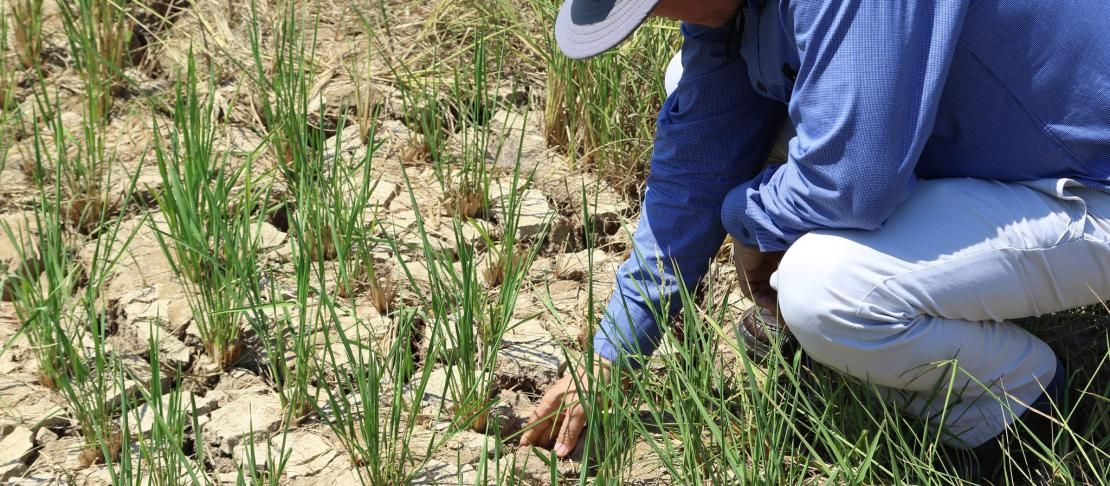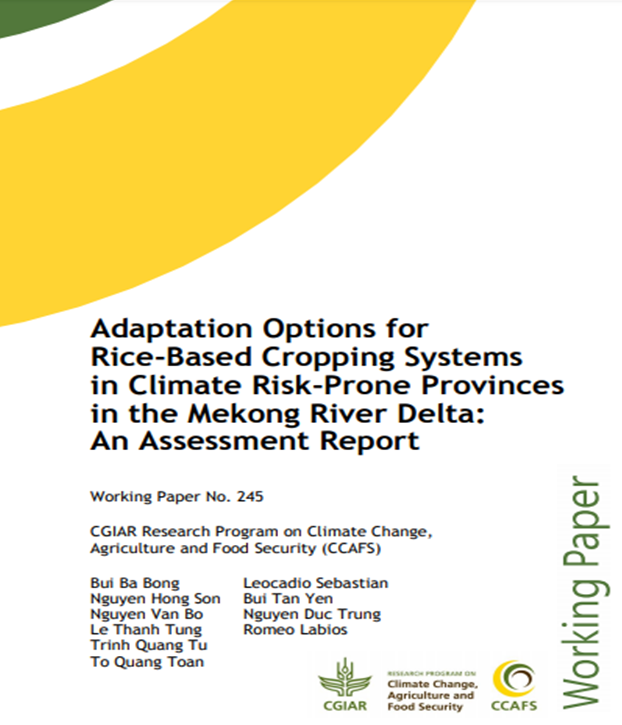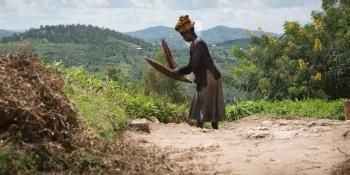Assessing the climate resilience and transformation potential of Mekong River Delta

The agriculture sector at the Mekong River Delta in Vietnam must transform to enhance its adaptation capacity against climate change impacts.
A master plan grounded in the context of climate change in the Mekong River Delta (MRD) is required to facilitate agricultural transformation. This is applicable especially in the region’s rice sector, which faces various climate-related risks such as floods, droughts, and salinity intrusion. Such risks were identified during the consultation meetings and field visits led by relevant government offices in Vietnam.
These activities enabled the Department of Crop Production (DCP) and several Department of Agriculture and Rural Development (DARD) offices, together with the CGIAR Research Program on Climate Change, Agriculture and Food Security in Southeast Asia (CCAFS SEA), to construct climate-related risk maps and adaptation plans (CS MAP). These tools were viewed as valuable resources in developing the agricultural adaptation plans of provinces in the MRD.
Considering the climate dimension in agriculture
Representatives from CCAFS SEA, DCP, and DARD offices found that farmers tend to disregard the provincial protocols on land use and production changes. At the provincial level, meanwhile, the focus is more on increasing the agricultural productivity than on adapting to climate change.
 Click here to read the publication. |
Despite the focus on productivity, prices of agricultural products are unstable. This instability is influenced by the lack of linkages between the farms and markets and is compounded by weak farmer organizations. Farmers resort to engaging with middlemen to sell their products.
Such farmers exhibited a lack of knowledge and skills to shift to climate resilient crops, trapping them within the confines of traditional, climate risk-prone practices. Extension services and infrastructures that can facilitate this shift are either absent or non-existent due to lack of investments.
Transforming agriculture in the Mekong River Delta
Agricultural transformation must be planned together by the authorities and the farmers. The authorities can guide the farmers in adjusting their planting calendars or changing their cropping systems. The farmers then must report their plans to the authorities to receive appropriate support and guidance.
Government authorities may utilize the CS MAP they co-developed with CCAFS SEA to guide their farmers. At the subnational and national levels, they will need investments to build infrastructures, which can facilitate the transformation process. The government can generate investments from the private sector, international organizations and public-private partnerships.
The farmers, meanwhile, need several prerequisites to join this transformation. For instance, they must enhance their financial capacity to afford such transformation and protect themselves from climate risks. They must also be knowledgeable in growing new crops that are more resilient to climate change impacts.
They can achieve these prerequisites through capacity building activities and other extension services, including access to credit and insurance. Capable farmers foster strong farmer organizations, enabling them to combat climate change as a collective force. This collaborative environment among relevant actors can facilitate a productive and sustainable transformation in the rice sector of MRD. CCAFS SEA can contribute on this transformation by helping agricultural stakeholders in Vietnam identify location-specific climate-smart agriculture options.
Download the publication: Bong BB, Bo NV, Son NH, Tung LT, Tu TQ, Toan TQ, Yen BT, Trung ND, Labios RV, Sebastian LS. 2018. Adaptation Options for Rice-Based Cropping Systems in Climate Risk-Prone Provinces in the Mekong River Delta: An Assessment Report. CCAFS Working Paper No. 245. Wageningen, the Netherlands: CGIAR Research Program on Climate Change, Agriculture and Food Security (CCAFS).
Read more:
- News update: Climate-Smart MAPs to aid in rice production at the Mekong River Delta of Vietnam
- News update: Climate Risk Informed Crop Calendar developed for the 13 provinces in the Mekong River Delta, Vietnam
- News update: Exploring transformational adaptation in agriculture under climate change
Renz Louie Celeridad is the Junior Communications Specialist for the World Agroforestry Centre (ICRAF) Philippines and Communications Consultant for CCAFS Southeast Asia.



